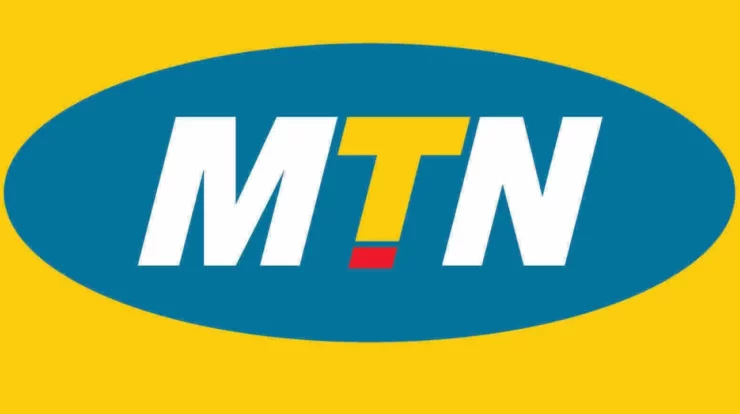
According to Statista, React Native is among the most popular languages and frameworks.
The data is about popularity among developers in 2022.
Now, there are several other technologies more popular than React Native. So then why should you choose it over the others?
What are the pros and cons of using React Native for your mobile app development needs?
And how can you find the very best React Native developers to work on your project?
You’ll find everything in this React Native app development guide right here.
What is React Native?
There are over 2.8 billion active Android users today.
Also, there are 1.2 billion plus iOS users globally.
At first glance, you may be motivated to ditch iOS and go for Android app development.
But consider this:

iOS has a bigger share of high-income households and young users. That’s an audience you can definitely not miss targeting.
So do you need to get two separate apps developed? Not with React Native.
React Native is an open-source UI platform developed by Meta.
It can be used to develop applications for Android, iOS, web, and Windows.
It basically lets developers utilise React.js with the native platform capacities.
React Native was first released on 26 March 2015.
Now, React Native isn’t the first or the only cross-platform technology. But what makes it so popular are its various pros.
But like with everything else, React Native is not without its fair share of shortcomings.
Let’s take a look at both.
Pros and cons of choosing React Native for cross-platform development
| Pros of React Native | Cons of React Native |
| A lot of time-saving tools and helpful error messages. These make for a great development experience. | Not suitable for very complicated designs or advanced integrations. |
| Quick iteration cycles help add more features to the cross-platform app, even later on. | A lot of custom modules are available. But some might still need to be developed from scratch for unique needs. |
| Robust error-reporting mechanism and debugging tools. | Tough to keep up with React Native updates. Updating an app to the latest version of React Native is often a complicated process. |
| A large and growing community of developers who continue to add to React Native’s existing capabilities. | |
| A lot of open-source libraries are available. These offer reusable code components which speed up the development process. | |
| The live reloading feature allows quick code rendering even after changes have been made to the code. | |
| Seamless compatibility with third-party plugins. | |
| The use of native APIs to render the UI results in a smoother and faster interface. | |
| Hot reloading allows developers to quickly see changes, making the whole process faster. |
The shortcomings of React Native are minor. And they don’t make it any less useful. But you should definitely avoid it in situations when its cons outweigh its pros.
Then you might want to consider other cross-platform app development technologies. Flutter, Xamarin or Ionic are worthy alternatives to go with.
How to hire a React Native developer?
Selected React Native as the technology for your cross-platform mobile app development needs? The next step you need to take now is to hire a React Native developer.
All developers with React Native mentioned on their resumes won’t yield the same results.
More than React Native’s inherent features, the way it is used is what defines the success or otherwise of a mobile app development project.
So finding the right React Native developer is of key importance.
Further, we will discuss –
- The various methods of hiring React Native developers, and
- The important factors to consider while hiring React Native developers.
Choosing the right hiring mode
Several new hiring modes have emerged today. Let’s check some of them that you can use to hire a React Native developer.
1. In-house React Native developer
Do you have a team of recruiters who can invite applications, sort them, and conduct interviews and background checks? If yes, you can hire React Native developers in-house.
Usually, such traditional approaches take up to 4 weeks to hire a React Native developer. And given the long hiring time, the process is likely to be costly too. However, what’s good is that you will have full control over the hiring process.
2. React Native development companies
For app development projects with a broad scope, you need multiple developers. Hiring a React Native development company makes more sense in such situations.
With a React Native app development company, you get access to a team of expert mobile app developers. Plus, you also get QAs and even project managers. Also, the mobile app development process is entirely taken care of by the company.
3. Freelance React Native developers
Need to get some quick fixes or patchwork done for your existing React Native mobile app? Hire freelancers.
Freelance React Native developers are available at comparatively lower costs. And while it is tough to keep them engaged for a long time, your current needs get addressed.
4. Dedicated React Native developers
Want to avoid hiring hassles related to in-house developers?
Don’t want to spend too much on hiring a React Native development company?
Want something quick like hiring freelance developers but for the long run?
Dedicated React Native developers are exactly what you need.
By hiring React Native developers from a talent-connect platform, you can:
- Get access to pre-vetted global talent.
- Avoid paying hiring costs and employee overheads.
- Quickly hire a React Native developer.
- Ensure long-term contracts and avoid patchwork.
- Request candidate replacements if they are not a cultural fit for your organisation.
5 Things to look for in a React Native developer
No matter how you hire React Native developers, here are the 5 key factors to look for.
1. Expertise
React Native, as a cross-platform mobile app development technology, is vast and spread out. Not every developer will have in-depth and hands-on expertise in all aspects of React Native.
So you need to check whether the developer can deliver what you need in your React Native app or not. A technical interview round will help you find that out.
2. Years of experience
React Native was first released in 2015. And those who started adopting the technology right in the nascent stages will be much more experienced today than those who have only recently started.
Now the number of years of experience shouldn’t be the only criterion you consider. But it definitely needs to be among the top factors.
3. Project portfolio
Not every React Native app is built alike. You need to check if the developer you are considering has relevant expertise or not. This can be best done by taking a look at their project portfolio.
If a React Native developer has developed several apps like the one you plan on getting developed, they are much more likely to be suitable for your needs.
4. Background check
Did you know that 78% of people lie during the hiring process? To avoid having liars on your team, you need to carry out detailed verification and background checks.
This will keep candidates with negative track records at bay.
5. Cultural fit
A React Native developer will work hand-in-hand with others in your team. They’ll have to coordinate with the marketing team, the designers, the testers and QAs, and the project managers.
To ensure harmony, you need a React Native developer who is a cultural fit for your organisation.
Getting started with React Native app development
With that, you now know everything that’s necessary for kickstarting your React Native app development process.
If React Native is really the right choice for your current mobile app development needs, start hiring dedicated React Native developers today.
And soon enough, you’ll be able to reach straight to your audiences through their mobile phones.






